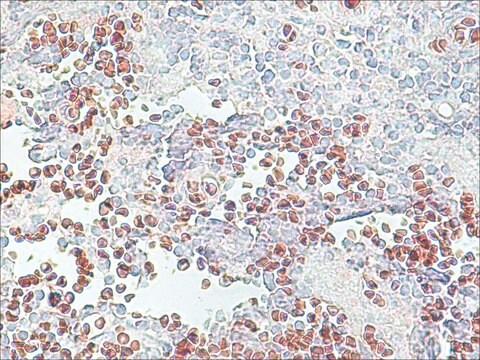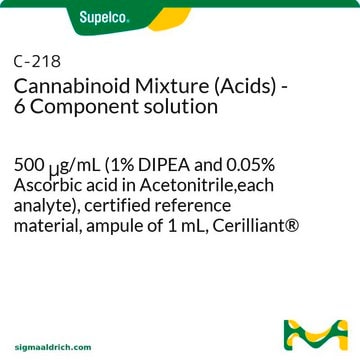C2866
Anti-Cannabinoid Receptor 1 antibody produced in rabbit
affinity isolated antibody, buffered aqueous solution
About This Item
IHC (p)
immunohistochemistry (formalin-fixed, paraffin-embedded sections): 8-11 μg/mL
Doporučené produkty
biological source
rabbit
Quality Level
conjugate
unconjugated
antibody form
affinity isolated antibody
antibody product type
primary antibodies
clone
polyclonal
form
buffered aqueous solution
species reactivity
human
availability
not available in Japan
technique(s)
immunocytochemistry: suitable
immunohistochemistry (formalin-fixed, paraffin-embedded sections): 8-11 μg/mL
UniProt accession no.
shipped in
dry ice
storage temp.
−70°C
target post-translational modification
unmodified
Gene Information
human ... CNR1(1268)
mouse ... Cnr1(12801)
rat ... Cnr1(25248)
Hledáte podobné produkty? Navštivte Průvodce porovnáváním produktů
General description
Immunogen
Application
Biochem/physiol Actions
Physical form
Disclaimer
Ještě jste nenalezli správný produkt?
Vyzkoušejte náš produkt Nástroj pro výběr produktů.
Storage Class
10 - Combustible liquids
wgk_germany
nwg
flash_point_f
Not applicable
flash_point_c
Not applicable
Vyberte jednu z posledních verzí:
Již tento produkt vlastníte?
Dokumenty související s produkty, které jste v minulosti zakoupili, byly za účelem usnadnění shromážděny ve vaší Knihovně dokumentů.
Náš tým vědeckých pracovníků má zkušenosti ve všech oblastech výzkumu, včetně přírodních věd, materiálových věd, chemické syntézy, chromatografie, analytiky a mnoha dalších..
Obraťte se na technický servis.








